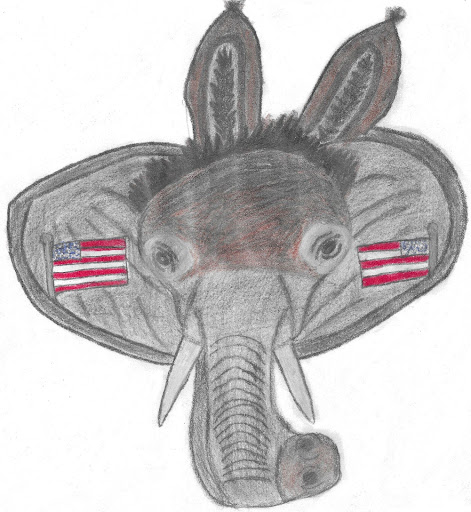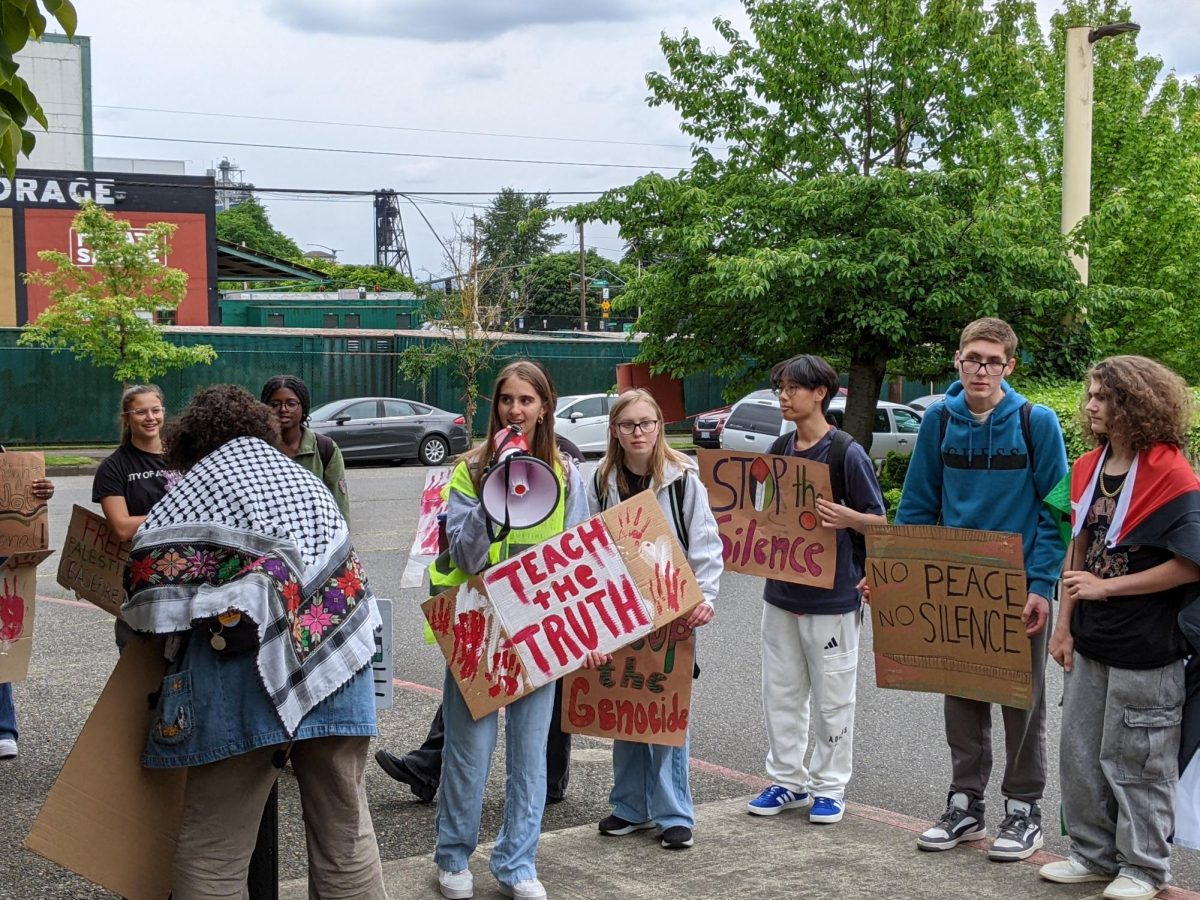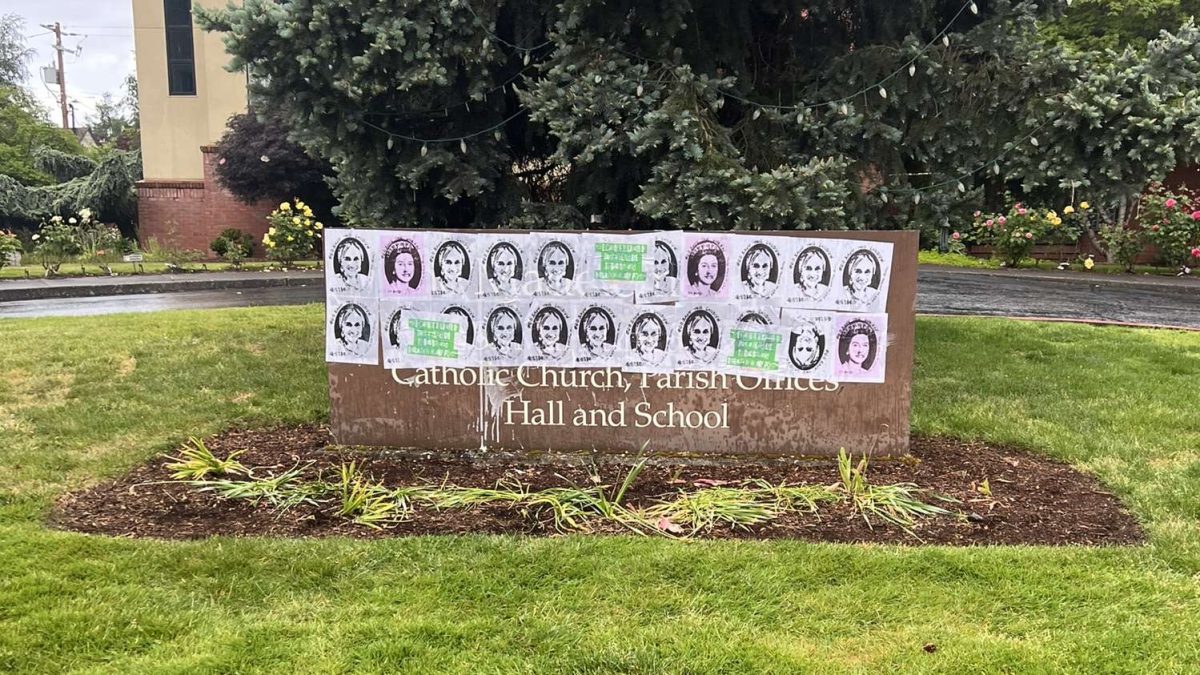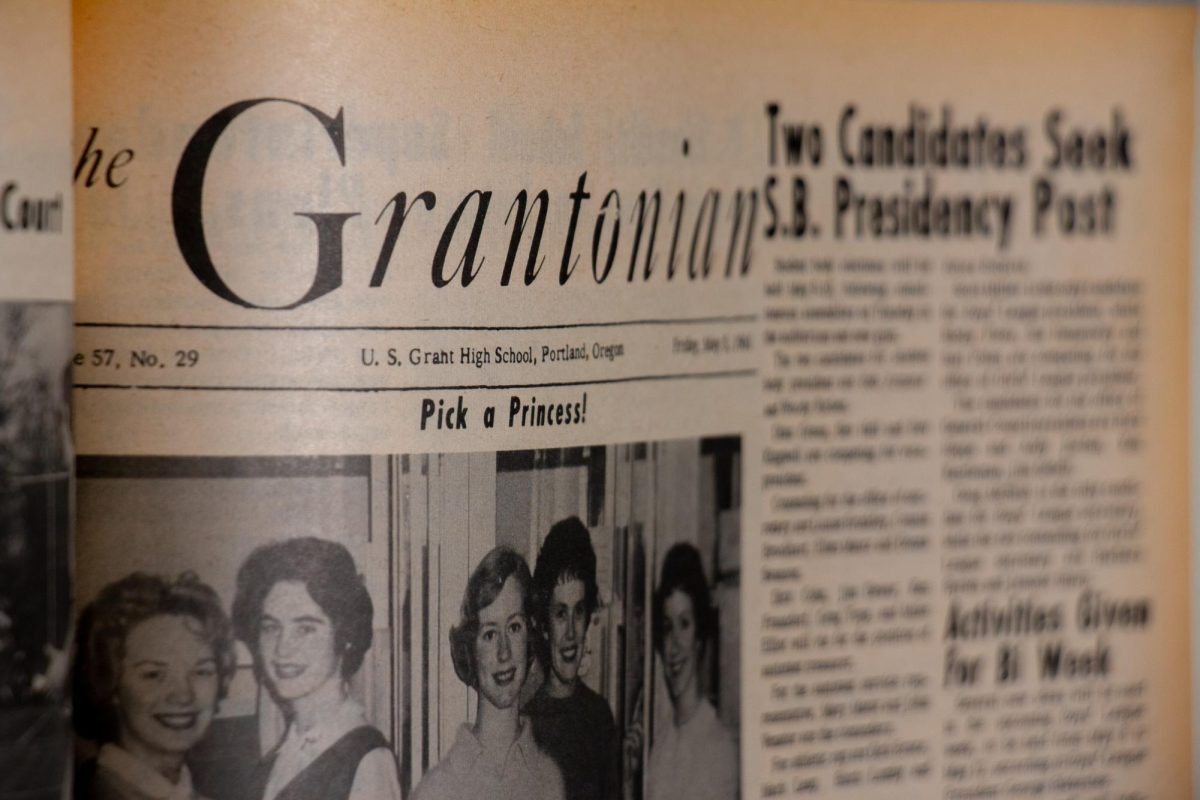As the election approaches, our country is the most divided it has been in 60 years. With this division, comes the opportunity to stand out from the crowd; this includes Grant High School. The Grant population, like anyone, very well exists in a bubble. Yet there is still plenty of nuance in the school’s opinions.
Take Virginia Keil, for instance, who is one of the case managers for special education students at Grant. Her job is to be an in-school advocate for students with disabilities, ensuring that their goals are improved, and accommodations are applied. Her perspective comes especially from this supportive standpoint.
“For my specific field, obviously disability justice is important to me, and so making sure that we are voting for people who respect disabled voices, and who don’t discount their experiences,” Keil says.
Additionally, Keil feels what it seems many are feeling in the U.S., but what not as many admit to in this setting. “I think it’s pretty obvious who I’m leaning towards voting for. But also, with that is the caveat of I don’t really trust anybody. And that’s what’s really hard is that like any politician these days; I just don’t have any kind of trust for them,” she says.
Keil also expresses her support for improving the correlations between political divisiveness and career politicians. “I don’t think that there should be unlimited term limits for senators and representatives. There needs to be a kind of an overturn in our political system. I think there’s lots of flaws and there’s a lot of greedy people out there,” Keil says.
Reports show that the prior June 27 debate’s ratings were blown out of the water, by what could be Trump and Harris’ only debate against each other. According to CNN, 67.1 million Americans watched the Harris versus Trump debate, while only 51 million watched Trump versus Biden. Out of the millions of viewers, it didn’t come close to the 81 million votes for President Biden in 2020, nor the 74 million for Trump. Together, excluding the third-party totals, there were about 155 million votes, and the mean viewership between both 2024 debates (59 million), makes the 2020 two-party vote totals approximately 2.6 times as much as this year’s mean debate viewership, or 38% of the two-party vote totals in 2020.
While Keil said that she wasn’t able to watch the debate, she recognizes the wave of reaction it sent across the country. She has seen some clips of it since then, namely when former president Trump made the false accusations of Haitian migrants eating residents’ pets. Calling it “sickening” that he used a platform to spread lies like that, she realized that the sad state of our country meant that many would mock the clip in the forms of memes and songs.
While some Grant seniors such as Cash Courtney, Lucy Lord and Ryan Nguyen, who are all in a unit together on Grant’s Constitution Team, still fit within their median political bubble; they’re motivated by different topics. None of them will turn eighteen in time to vote this election cycle, but that doesn’t stop them from having their own nuanced opinions.
They all watched that debate to varying degrees, each sharing different takeaways. Lord voices her debate conclusions very matter-of-factly. “For me, I just think that there’s such a big difference between the candidates, morally and also policy-wise. I feel like there’s one candidate who will bring about a lot of change in a positive manner, and then one candidate that I feel like would detract from the very values that America has at its founding,” she says.
Nguyen focuses on the age gap between the candidates and how that can impact younger people that may not even be of voting age yet. “With Joe Biden and Donald Trump, many of my peers and I don’t see that they want to do much for us because they’re older. So with Harris, she’s going to bring changes for younger people,” adds Nguyen.
While Courtney likewise emphasizes his belief that Harris’ electability and how her identity juxtaposes Trump’s, he also emphasizes the historical context of past debates; “I watched a bunch of debates from before the 2000s. Even when Reagan was destroying Mondale, the debates were relatively civil, compared to what we have now,” he says, referring to the 1984 presidential election.
Regardless of one’s voting outlook this year, there is huge room for record voter turnout; Federal studies, such as the one from the U.S. Census Bureau, indicate that 2020 voter turnout was at about 66%. In other words, approximately 66% of eligible 18+ year-old voters voted in the 2020 presidential election. Nevertheless, the coverage of this election indicates that voter turnout could be higher.
Official polling averages indicate a tight vote, albeit one where polling currently leans towards Vice President Harris. Yet at the same time, odds based on polling model simulations, which focus on state-level swing state polls, indicate a slight Trump lean. The states of Arizona, Georgia, Michigan, Nevada, Pennsylvania and Wisconsin (all of which President Biden won by variously narrow margins in 2020), will determine who will be the next president of the United States. Additionally, North Carolina, the narrowest Trump margin of victory of any state four years ago, is also in play.
Lord speaks to how she sees the different factions of those battleground states. “Kamala Harris has to appeal to people in Michigan and Wisconsin, and she has to appeal to people in Georgia and Arizona. I think that those are two different parts of the country that are focusing on two different issues. For Arizona, a lot of people are concerned with the border and that’s maybe not as much of a thing for people in Michigan, because they’re not right on the border. … So you get different viewpoints, but also the notion of a swing state is somewhat inherently undemocratic,” Lord says.
Whether someone is eligible to vote or is not, Grant High School is engaged in watching the country vote. And with an unprecedented federal contest between a third-time candidate convicted of 34 felonies (who seeks to be only the second nonconsecutively-termed U.S. president after Grover Cleveland), and a repledged democratic nominee who could be the first female BIPOC president, anything could happen.

































